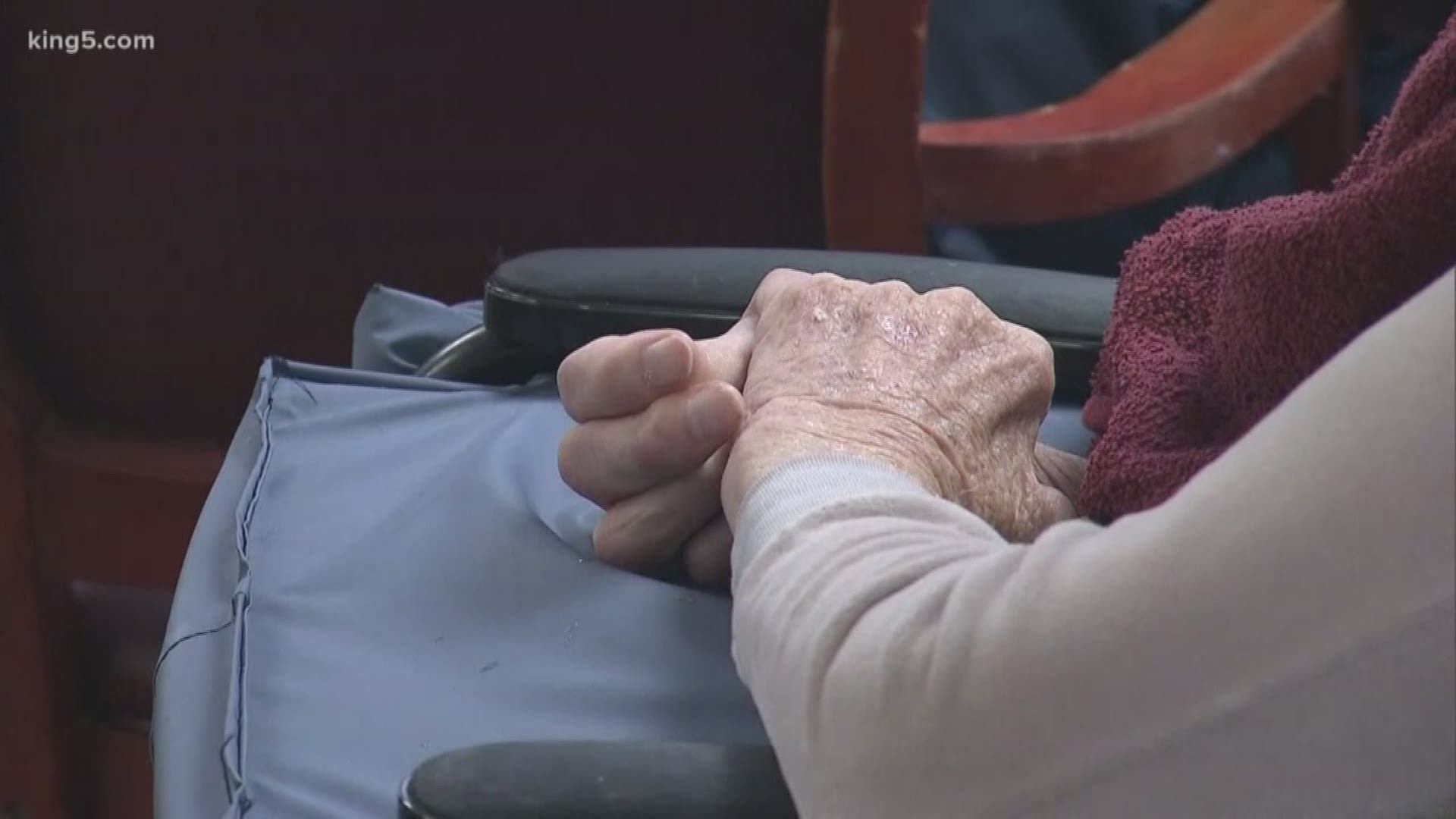Washington is the first state in the nation to establish a program to help offset the costs of long-term care, under a new law signed Monday by Gov. Jay Inslee.
Starting in 2025, the program promises a benefit for those who pay into the program, with a lifetime maximum of $36,500 per person, indexed to inflation, paid for by an employee payroll premium.
Inslee, surrounded by a large group of lawmakers and advocates of the measure, called it a "win for all Washington workers."
"This benefit will be available for those who need it when the time comes to face the fact that daily living presents some challenges, and you need just a little help," he said before signing the measure. "This is going to make sure that help is there without bankrupting your family."
Under the new law, premiums of 0.58% of wages will start being collected from employees by 2022. Starting Jan. 1, 2025, people who need assistance with at least three "activities of daily living" such as bathing, dressing or taking medication could tap into the fund to pay for things like in-home care, home modifications like a wheelchair ramp and rides to the doctor.
To be eligible, workers will have had to have paid the premium working at least 500 hours per year for three of the previous six years in which they're seeking the benefit or for a total of 10 years, with at least five of those paid without interruption.
According to AARP of Washington, 70% of residents 65 and older will require some type of assistance to live independently.
Only an estimated 7 million to 8 million Americans have private long-term care insurance, which is costly and generally requires applicants to pass a health screening. Many assume that Medicare covers long-term care, but that's not the case except for limited care for skilled nursing or rehabilitation. Qualifying for public coverage under Medicaid, which covers low-income people, involves spending down lifetime savings.
Democratic Sen. Guy Palumbo said that the bill is "not only the morally right thing to do, but it's also fiscally responsible for the state of Washington."
"Rather than making people buy their way down into poverty, we're trying to do the right thing to make sure they can age with dignity," he said.
Washington isn't the only state that has contemplated long-term care, but it moved the fastest on creating a defined insurance policy.
Hawaii has adopted a public cash benefit for caregivers of the elderly. California is considering a ballot initiative on a public long-term care financing program.
Michigan and Illinois are beginning to study public programs for those not on Medicaid, and Minnesota's human services department has proposed two alternative private financing options, according to Howard Gleckman, a senior researcher at the nonpartisan Urban Institute think tank.
Last year, voters in Maine rejected a referendum that would have provided home care to all seniors and disabled people regardless of income.
"Medicare for All" bills, introduced by Vermont Sen. Bernie Sanders and Democratic Reps. Pramila Jayapal of Washington state and Debbie Dingell of Michigan, expand coverage for long-term care, emphasizing home and community based services.
About two-thirds of adults favor a long-term care program similar to Medicare, according to an Associated Press-NORC Center for Public Affairs Research poll last year. That includes 76% of Democrats and 56% of Republicans.

